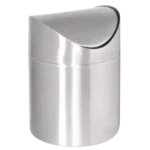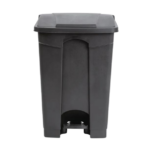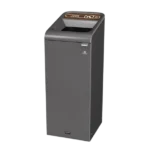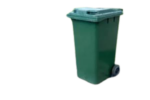Commercial food waste collection
Get a FAST & FREE quote for commercial food waste collections
Just enter your business postcode…
Get a FAST & FREE quote for commercial food waste collections
Just enter your business postcode…
Start saving now
From April 2025, most businesses generating over 5kg of food waste per week will be required to segregate and arrange for the separate disposal of their food waste. A commercial food waste collection service is the simplest way for businesses to comply with the new food waste recycling requirements. Beyond compliance, there are three important benefits to using commercial food waste collection services:

Managing commercial food waste through a dedicated food waste collection disposal service is significantly cheaper than general business waste collection. A food waste collection service can help lower overall commercial waste collection costs.

Food waste included within general waste ends up in landfill, decomposing and producing methane, a harmful greenhouse gas. Reduce your business waste emissions with a dedicated food waste collection service.

There are over 100 operational anaerobic digestion plants in the UK that utilise food waste as fuel to produce green biogas. This biogas will be a necessary substitute for natural gas (a fossil fuel) in the UK’s transition to a carbon-neutral economy.
Our business waste experts have assisted thousands of UK businesses in arranging a commercial food waste collection service.
Here’s how a commercial food waste collection service works:

Your waste provider will supply your business with a dedicated bin to store food waste between collections. Within your commercial waste contract, you can select from a range of commercial waste bin sizes.

Your waste firm will regularly empty your food waste bin, as your business requires. The frequency depends on the volume and type of food waste generated. Food waste can begin to smell if stored for too long.

Your waste collection provider will transport your waste to a local composting or anaerobic digestion facility. Your waste provider will also issue you an annual waste transfer note so you can demonstrate compliance.
The following types of food waste can be included within a commercial food waste bin:

Includes peelings, cores, and scraps.

Stale or leftover bread, cakes, and pastries.

Cheese, yoghurt, and other dairy items.

Cooked or uncooked, including bones.

Used grounds and tea bags.

Cooked or uncooked grains, pasta, and rice.
The following specific types of waste cannot be included within a commercial food waste bin:

Wrappers, bags, and containers.

Bottles, jars, and cans.

Paper towels, napkins, and plastic utensils.

Typically too tough to process.

From seafood like oysters and crabs.
Various bins are used for commercial food waste collection, each designed for specific needs. It’s crucial to use the appropriate bins, particularly for raw meat.
Below are the most common commercial waste bins used for the collection and storage of food:
Picture source: Nisbets

Countertop bins offer a convenient way to quickly dispose of food waste while cooking or preparing meals. Their compact size makes them easy to place on kitchen countertops, providing immediate access for discarding scraps and trimmings.

Pedal bins often come with lids that can be opened hands-free, reducing the risk of contamination from handling. The pedal mechanism allows for easy and convenient food waste disposal, even when hands are occupied.

Open-top bins allow quick and effortless disposal of food waste without opening a lid, making them convenient for busy commercial kitchen environments where efficiency is paramount. The open-top design provides clear visibility of the bin’s contents.

Most businesses with a food waste collection service will utilise a 240-litre standard wheelie bin for commercial kitchen bin collection. This bin type is suitable for various kinds of food waste, including leftovers, peels, cooked meat, and coffee grounds.

Compostable and biodegradable commercial food waste sacks are an environmentally friendly alternative to plastic bin bags. These sacks can be processed at food waste recovery facilities, and some waste firms include them as part of their food waste collection service.
The leading industries contributing to food waste are involved in the food supply chain, spanning from farms to the point where food is sold to consumers, either in supermarkets or restaurants. Here are the top three industries responsible for food waste.

Cafeterias in schools contribute to food waste primarily through over-preparation of school meals resulting in unsold food at the end of the day which must be disposed.

Pubs often face food waste due to the need to maintain a diverse menu of fresh food options. This results in excess ingredients and uneaten food from patrons, contributing significantly to overall waste.

Restaurants must stock fresh ingredients daily to provide a variety of dishes, leading to inevitable food waste from unused and leftover ingredients and uneaten customer leftovers.